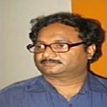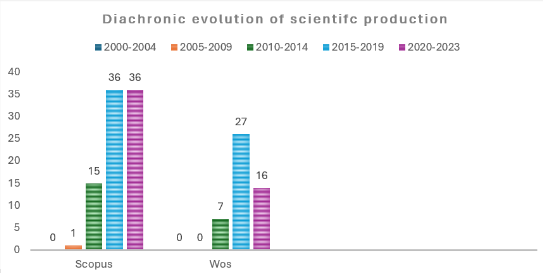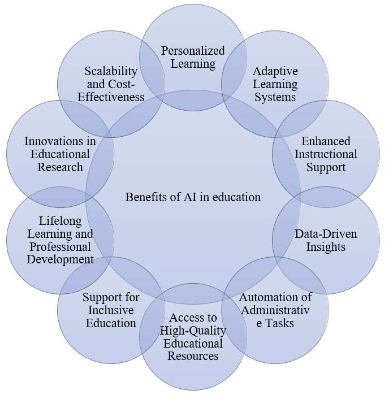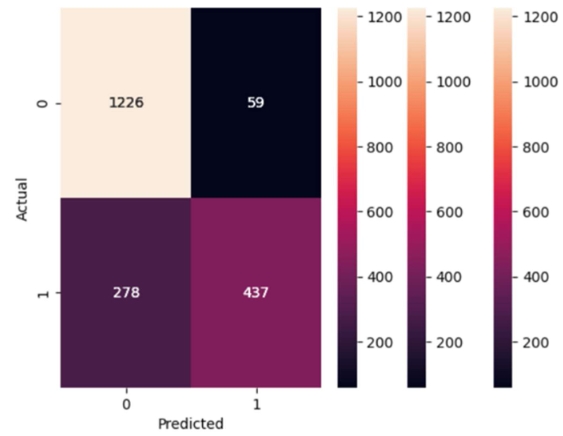Diachronic analysis of Spanish scientific production on teaching methodologies in Primary Education: A scientometric and conceptual perspective (2000–2023)
Abstract
The evaluation of science is essential to ensuring the quality, validity, and reliability of scientific results. Science needs to undergo a review process to ensure the rigorousness of scientific output. This evaluation provides a solid basis for political and economic decisions related to the design and execution of research projects, the establishment of new lines of research, or the identification of areas of specialization. This paper analyses diachronically the Spanish scientific production related to the implementation and development of teaching methodologies in primary education and indexed in the Scopus and Web of Science databases during the period 2000–2023. This analysis is carried out on the one hand, from a scientometric perspective, based on the analysis of indicators such as diachronic production, the journals with the highest scientific productivity, and the most productive institutions, and, on the other hand, from a conceptual perspective, trying to define its relationship with other areas of education. The general results of this study reveal two clear stages: the first, up to 2010, with little scientific production; and the second, from 2011 onwards, characterised by a general growth. The relationship between this field and others such as initial teacher training, ICT, and didactics is also evident.
References
[1]Esquinas, M. F., Catalán, C. D., y Vielba, I. R. Evaluation and science policy in Spain: the origin and implementation of scientific evaluation practices in the public R&D system (1975–1994). In: T. González de la Fe T & López Peláez, C. Innovation, scientific knowledge and social change. Essays on the Iberian sociology of science and technology. Center for Sociological Research (CIS), 2011. pp. 93-130.
[2]Codato, A., Silva, R., Perich, R., Bittencourt, M., y Lorencetti, M. A scientometric review of global research on political elites. Pleiade. 2021, 28, 56-83.
[3]Hernández-Valverde, F. J., y Vallejo, M. Scientometric analysis of scientific production on inclusive education in primary education (2000-2020). International Journal of Social Science Research. 2023, 19(2), 319-338.
[4]Arencibia, R., y de Moya Anegón, F. The evaluation of scientific research: a theoretical approach from scientometrics. Acimed. 2008, 17(4), 0-0.
[5]Vallejo, M., Torres-Soto, A., Curiel-Marín, E. y Fernández de Ahumada, E. Inquiring into the Exemplary Spanish Theses of Mathematics Education: analysis of their scientific impact. Bolema: Bulletin of Mathematics Education. 2023, 37(76). DOI: 10.1590/1980-4415v37n76a24
[6]Sanz Menéndez, L. The evaluation of science and research. Spanish Journal of Sociology. 2014, 21, 137-148
[7]Vallejo, M., Torralbo, M. and Fernández-Cano, A. Gender Bias in Higher Education: Spanish Doctoral Dissertations in Mathematics Education. Journal of Hispanic Higher Education. 2015, 15(3), 205-220.
[8]Albornoz, M. Estébanez, M.E. and Alfaraz, C. Scope and limitations of the notion of social impact of science and technology, Iberoamerican Journal of Science, Technology and Society. 2005, 4(2), 73-95.
[9]España. Royal Decree 157/2022, of March 1, establishing the organization and minimum teachings of Primary Education. Official State Gazette, March 2, 2020, no. 52.
[10]Trillo-Domínguez, M. and De Moya-Anegón, F. Map of scientific research on Communication in Spain: study fronts and rankings of authors, publications and institutions. Professional Information. 2022, 31(1). https://doi.org/10.3145/epi.2022.ene.12
[11]España. Organic Law 2/2006, of May 3, 2006, on Education. Official State Gazette, May 4, 2006, No. 106.
[12]España. Organic Law 3/2020, of December 29, 2020, which amends Organic Law 2/2020, of May 3, 2020, on Education. Official State Gazette, December 30, 2020, no. 340.
[13]García-Hernández, M.L., Porto Currás, M. and Hernández-Valverde, F.J. The inverted classroom with first-year teacher training students: strengths and weaknesses. University Teaching Journal. 2019,17(2), 89-106.
[14]Muntaner-Guasp, J.J., Pinya-Medina, C. and Mut Amengual, B. The impact of active methodologies on academic outcomes: a case study. Profesorado, journal of curriculum and teacher training. 2020, 24(1), 96-114. https://10.30827/profesorado.v24i1.8846
[15]Ros Pérez-Chuecos, R. Study on teaching methodologies and competencies in Primary Education. Reidocrea. 2015, 4, 378-385.
[16]Martínez, M.F., Nieto, J.M. and Vallejo, M. Good teaching practices from teacher conception. Open School. 2016, 19, 81-100.
[17]Caballano-Infantes, E. Di Zeo-Sánchez, D. Sánchez-Núñez, P. Borrego, L. Investigation of inverted classroom-based pedagogical methodology during the COVID-19 pandemic: a scientometric study. In IN-RED 2021: VII Congress on Educational Innovation and Networked Teaching. Editorial Universitat Politécnica de Valencia. 2021, pp. 1585-1596. https://doi.org/10.4995/INRED2021.2021.13805
[18]Cobos Sánchez, A., Padial Suárez, J.J. y Berrocal de Luna, E. Gamification through E-learning platforms: Scientometric analysis of an emerging pedagogy implemented through ICT. REIDOCREA. 2021, 10(30), 1-20.
[19]Gutiérrez-Braojos, C., Montejo-Gámez, J., Poza-Vilches, F. & Marín-Jiménez, A. Evaluation of research on pedagogy Knowledge construction: in mixed methodological approach. RELIEVE. 2020, 26(1), http://doi.org/10.7203/relieve.26.1.16671
[20]Redondo-Corcobado, P. y Fuentes, J.L. Research on Service-Learning in Spanish scientific production: a systematic review. Complutense Journal of Education. 2019, 31(1), 69-83.
[21]Yepes-Nuñez, J. J., Urrutia, G., Romero-García, M. y Alonso-Fernández, S. PRISMA 2020 statement: an updated guideline for the publication of systematic reviews. Spanish Journal of Cardiology. 2021, https://doi.org/10.1016/j.recesp.2021.06.016
[22]Bradford, S.C. Documentation. Crosby Lockwood. 1948.
[23]Lotka, A.J. The frecuency distribution of scientific productivity. Journal of the Washington Academy of Sciences. 1926, 16(12), 317-323.
[24]Méndez, J. R. ICT in primary science teaching: Challenges and opportunities. Educational Innovation. 2019, 29, 81-95.
[25]Valverde-Berrocoso, J., Garrido-Arroyo, M. C., Burgos-Videla, C., & Morales-Cevallos, M. B. ICT and teaching in times of confinement: Teaching practices and changes in education. Iberoamerican Journal of Education. 2020, 85(2), 93-108.
[26]Echeita, G., & Ainscow, M. Inclusive education as a right: Reference framework and action guidelines for the development of a pending revolution. Tejuelo. 2021, 12, 26-49.
[27]Escudero-Mancebo, D., González-Suárez, C., & Martínez-Fernández, J. R. Teacher perspectives on inclusive education: Analysis of a case study. Journal of Educational Research. 2021, 39(2), 351-369.
Copyright (c) 2024 Francisco José Hernández-Valverde, Mónica Vallejo

This work is licensed under a Creative Commons Attribution 4.0 International License.









